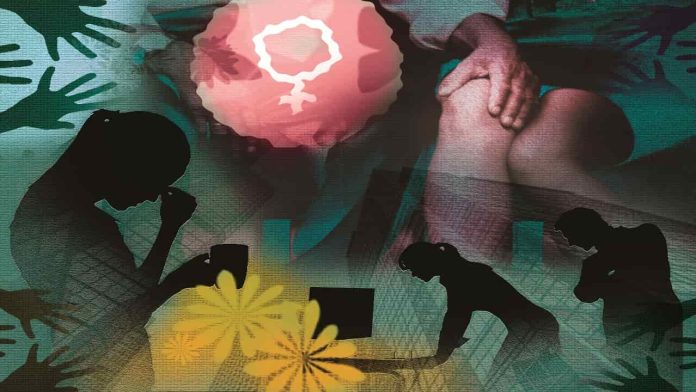By Shaan Katari Libby
Allegations of sexual impropriety against the president of the Wrestling Federation of India by top wrestlers highlight the dire state of the sexual harassment law in India. Not only has nothing been done against the accused, BJP MP Brij Bhushan Sharan Singh, but the protesting wrestlers were earlier physically removed by the police and detained for 10 hours. This is the disheartening state of affairs in India.
Yet, the Supreme Court has been outspoken and been insisting that the centre follow the Prevention of Sexual Harassment Act, 2013. Possibly taking courage from the Court, people have been speaking up against those in power. Although there is always a fear that the internal complaints committee (ICC) will be swayed by who they are dealing with, there is still hope from the sheer groundswell that the guilty will be brought to justice.
Another high profile case was the one in Kalakshetra where some teachers were accused of sexual harassment, leading to one of them being arrested by the Chennai police. Despite an uncooperative management and ineffective ICC, spontaneous outpouring from the students led to much press coverage across the world. The upshot of this kind of organic mass reaction is that those in power have to eventually take note.
Another noteworthy point is that those protesting of late are not even the victims, but those supporting them. For instance, in the wrestlers’ case, it is Olympic stars who were giving up their training time and sitting in the sweltering heat of Delhi for Singh to be arrested. Such has been their dedication to the cause that nearby residents opened their homes to allow them to shower and gave them food. Even when the story was no longer making headlines, these wrestlers were there.
Meanwhile in Kalakshetra, there have been hundreds of women sitting in and speaking out against the sexual harassment. So much so that a Justice Kannan Commission has been constituted to hear the various allegations and ensure that the tenured faculty members are punished and dismissed.
So what is sexual harassment as per law? Is it about the intention of the accused? Is it about his upbringing? Is it about his economic status? Is it about his seniority? The answer is no to all about the above. It has everything to do with the perception of the victim. So, if something is said or done or insinuated such that the victim is humiliated or made to feel insignificant or abused or victimised, it is classified as sexual harassment. It is unwanted behaviour—verbal or non-verbal—of a sexual nature. The job of an ICC is to understand from the victim’s perspective exactly what happened and speak to witnesses to see if this behaviour has happened in the past. Even if it hasn’t, it can still be sexual harassment.
The culprit should be punished according to the gravity of the harassment. The inquiry should take place formally and efficiently, allowing time for the victim and witnesses to speak out and for the respondent to rebut with witnesses, if any. The two will never come face-to-face. Then the ICC will decide whether there was any sexual harassment and what the punishment should be.
I train regularly at companies in the Prevention of Sexual Harassment law and have found that more and more women are beginning to speak up and even some men who are belittled or harassed in the workplace.
The more people speak up, the less confident the harassers will be. The ultimate goal is to stamp out this kind of unacceptable behaviour. Unfortunately, the government having brought in the Prevention of Sexual Act now seems to be unable to apply it equally to all. Everyone, be it a citizen or an MP is equal before law. That’s what needs to get through. Until then, we will have star athletes sitting in the street protesting.
Perhaps the Supreme Court can mandate each High Court to regularly educate the police and MPs on the law and the Constitution. Continuing professional education should be made mandatory so that the police, MPs and civil servants are not living in a time warp. It is frustrating to see the police send back domestic violence victims telling them to “adjust” to their abusers.
If they remain oblivious of the law, then the law itself is meaningless. In this age of smart phones and YouTube and Google forms, instruction and testing can happen at the touch of a button. We just need to care enough to ensure it happens.
—The writer is a barrister-at-law, Honourable Society of Lincoln’s Inn, UK, and a leading advocate in Chennai


